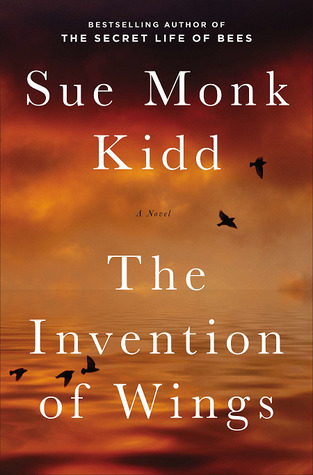More on this book
Community
Kindle Notes & Highlights
I remembered the way one remembers the sun, the moon, and the stars hanging in the sky. The world seemed to rush toward me, sheened and beautiful. I looked at Thomas and felt confirmed in my destiny. I had an ally. A true, unbending ally.
Soon to be twelve, I was on the cusp of maidenhood, and I wanted to marry—truly, I did—but such numbers petrified me. Coming, as they did, so soon after my books being taken away, quite soured me on the female life.
this kind of lunacy occurred in women after childbirth or at the withdrawal of a woman’s menses. He declared me a high-strung, temperamental girl with predilections to hysteria, as evidenced by my speech.
I’d observed five of Mother’s gestations, and clearly this was her most difficult. She’d enlarged to mammoth proportions.
My aspiration to become a jurist had been laid to rest in the Graveyard of Failed Hopes, an all-female establishment.
“That boy got his heart fix on you.” “I don’t want him fixing his heart on me.” “That’s good,” she’d said. “I can’t buy nobody’s freedom but mine and yours. You get a husband, and he on his own.”
All that pride about what we were worth left me then. For the first time, I felt the hurt and shame
He yanked me by the arm, yelled, “Is this the sort of person you want to be? The kind that steps aside? The kind that grovels in the street?”
I wanted to say, Get your hand off me, you don’t know nothing about me, I bathe in a copper tub, and you’re standing here and stink to heaven.
This experiment was being performed on the second-floor piazza—me, sitting on the swing, neck craned, mouth open, eyes bulging—the vision of a voracious baby bird awaiting her worm,
Why didn’t the Grimké men assemble in our defense?
Mr. Williams had himself two more fiancées. Now who has to remove himself hastily?
Don’t think she wasn’t in every stitch I worked. She was in the wind and the rain and the creaking from the rocker. She sat on the wall with the birds and stared at me. When darkness fell, she fell with it.
I was cut straight from my mauma’s cloth.
Reverend Brown said, be careful, heaven would be whatever you picture it. His picture was Africa before the slaving—all the food and freedom you wanted and not a white person to blight it.
After my conversation with Father, I felt flayed open, all pulp and redness.
But I would tell Mother none of this. Nor would I tell her that at the hour of his death, I was floating free in the ocean, in a solitude I would remember all of my life, the gulls cawing over my head and the white flag flying at the top of the pole.
That’s how I got the first carriage ride of my life. Along the way, Tomfry said, “Wipe the grin off your face, we supposed to be grieving.”
He gazed at me with kindness and pity. “To remain silent in the face of evil is itself a form of evil.”
Quaker book. I thought often of the fire bell in the night.
How can I explain such a thing? I simply know it the way I know there’s an oak tree inside an acorn.
He thought my ambition was a consolation? Reflexively, I stood and took a few steps.
Be consoled in knowing the world depends upon the small beating in your heart. Yours, Nina
But sitting here now, I knew if I’d accepted Israel’s proposal, I would’ve regretted that, too. I’d
chosen the regret I could live with best, that’s all. I’d chosen the life I belonged to.
The daughter of Judge John Grimké—a Southern patriot, a slaveholder, an aristocrat—living in this austere house in the North, unmarried, a Quaker, an abolitionist.
I stood by the bed that morning, looking down on mauma still sleeping, the way she had her hands balled under her chin like a child.
I heard missus tell her, “You didn’t need to bring the entire plantation with you.” And Mary said, “Would you prefer I’d left my money behind, too?”
I let my eyelids fall shut on the world. What was it for anyway? What was any of this for?


